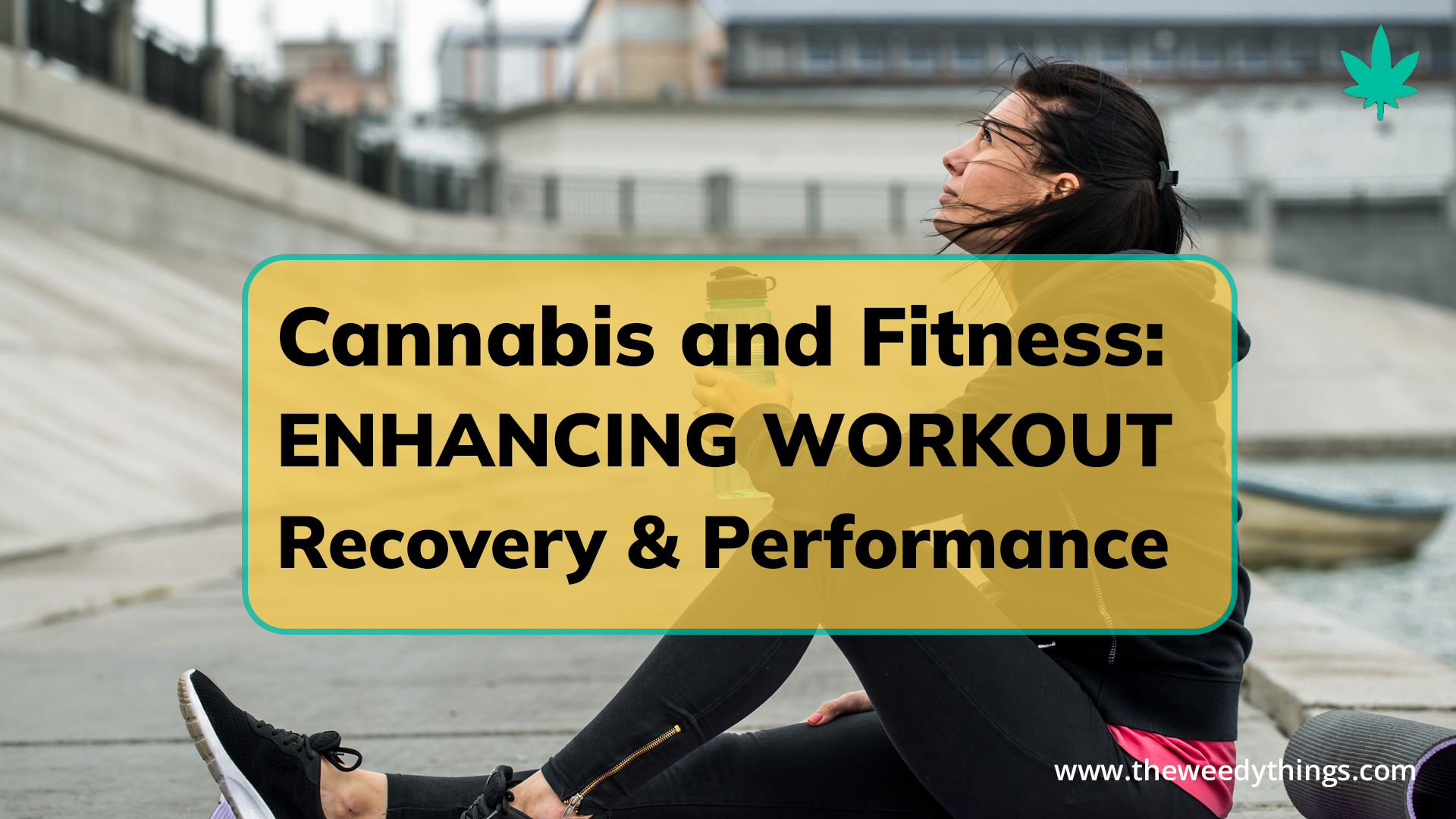For decades, cannabis was seen mainly as a recreational or medicinal plant. Today, however, it’s carving out an unexpected new role — in the world of fitness and athletic recovery. Athletes, gym-goers, and fitness enthusiasts are increasingly turning to cannabis to support performance, enhance recovery, and manage workout-induced pain and inflammation.
How Cannabis Interacts with the Body for Fitness
The key lies in the Endocannabinoid System (ECS) — a vast network of receptors throughout the body that helps regulate:
Pain and inflammation
Mood and motivation
- Sleep and recovery
Stress response
When you consume cannabis compounds like CBD (cannabidiol) and THC (tetrahydrocannabinol), they interact with the ECS to bring balance (homeostasis) back to the body, which is crucial after intense physical activity.
Benefits of Cannabis for Fitness and Recovery
1. Reduces Muscle Soreness and Inflammation
CBD is known for its potent anti-inflammatory effects.
Helps in minimizing Delayed Onset Muscle Soreness (DOMS) after tough workouts.
- Cannabis topicals can target sore muscles directly.
2. Enhances Pain Management
THC can modulate pain perception, making post-exercise discomfort more manageable.
- Athletes recovering from injuries often report relief from chronic pain with cannabis.
3. Promotes Restful Sleep
- Recovery happens during deep sleep, and cannabis, especially CBD, can improve sleep quality by reducing anxiety and promoting relaxation.
- THC may help those who struggle with sleep onset (falling asleep).
4. Boosts Mental Focus and Motivation (in Low Doses)
- Microdosing THC may enhance mood, creativity, and workout motivation without causing impairment.
Some athletes find small amounts of cannabis help them get “in the zone” during endurance activities like yoga, hiking, or long-distance running.
5. Speeds Overall Recovery
By supporting anti-inflammatory, pain-relief, and sleep pathways, cannabis may help athletes return to training faster.
How to Integrate Cannabis into a Fitness Routine
If you’re considering cannabis to support your fitness goals, here’s how to approach it wisely:
Choose the Right Products: CBD oils, capsules, or infused balms for recovery; low-dose THC edibles for motivation.
- Time It Right: CBD pre-workout for focus or post-workout for recovery; THC very cautiously, preferably after workouts.
Mind the Dosage: Start with low doses, especially for THC. Everyone’s tolerance varies.
- Stay Hydrated: Cannabis can cause slight dehydration, so drink plenty of water.
Prioritize Legal and Tested Products: Always use third-party tested, high-quality cannabis products.
Cannabis, Fitness, and Recovery: A Growing Trend
Several high-profile athletes have endorsed cannabis use for fitness recovery, including:
- Ultramarathoners who use CBD for joint support.
MMA fighters who use cannabis to manage injury pain.
- Yoga practitioners who use microdoses to deepen their mindfulness practices.
As stigma declines and research grows, cannabis is becoming a respected tool for optimizing physical health — when used responsibly.
Precautions When Using Cannabis for Fitness
Avoid high THC doses before intense physical activity to prevent dizziness or impaired coordination.
- Check your local laws regarding cannabis use in fitness events or competitions.
If competing professionally, ensure compliance with anti-doping regulations (many allow CBD but not THC).
Frequently Asked Questions
Yes, cannabinoids like CBD have strong anti-inflammatory properties that can reduce muscle soreness and speed up recovery times.
Low doses of THC might enhance focus for some, but it’s safer to use CBD before workouts and reserve THC for post-exercise recovery to avoid coordination issues.
If dosed properly, cannabis — particularly CBD — can support rather than hinder performance. Overuse or improper timing (especially THC) could negatively impact coordination and focus.
CBD is generally preferred for recovery because it’s non-intoxicating, anti-inflammatory, and improves sleep without psychoactive effects.
CBD is widely accepted, but THC remains banned in many sports organizations. Always check your competition’s regulations before using any cannabis products.




